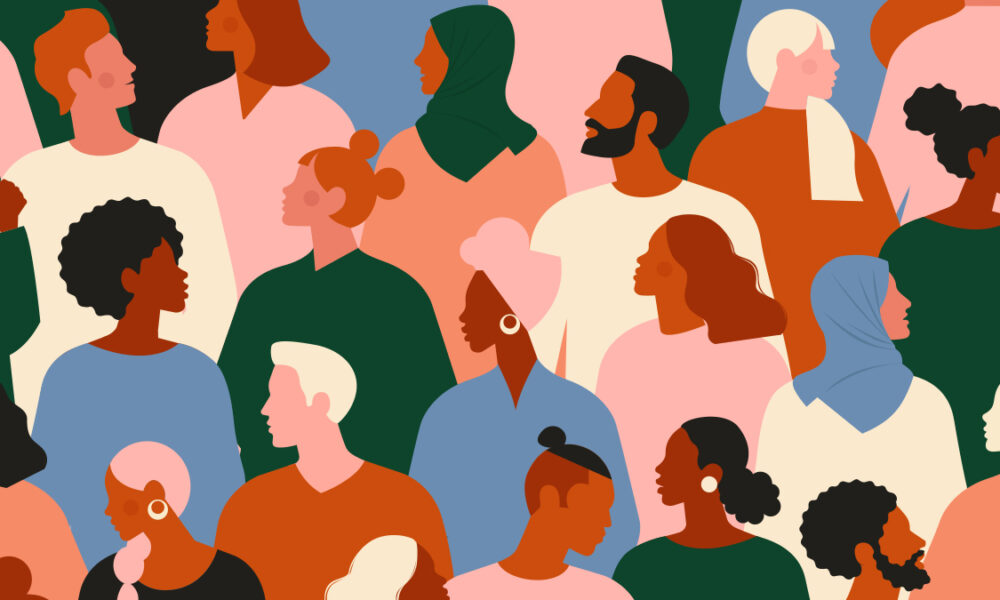To kick off Black History Month, The McGill Tribune has prepared ways for you to talk to the only Black person in your workplace. Remember to speak to a Black person is to move closer to racial justice. Those were the words of Colin Powell or Clarence Thomas or Candace Owens I think.
Always stalk your co-worker. Every conversation requires preparation. Leave your high-rise, and go check out where the gentrifiers don’t go.
They’re in their cubicle. Note their hair––the kink pattern will tell you if they are more of a Real Housewives of Atlanta or Potomac Black person. No kink? No problem! That’s not their hair, silly goose! And they’d love it if you comment about how unnatural their hair is. Wig, weave, extension, repeat these words. You listen to Drake, so. Work your way up their neck and touch—nay, grab!—their hair. If they’re wearing it out in the open, it’s open country! As you remember from the anti-racism training that Rita from HR forced you to go to twice, Black people aren’t a monologue or the disease mono or whatever, so try and touch each one.
Begin talking to them. You’ll become their white friend here, and they’ll like you. Black people also want to be in romantic, and disturbingly physical, relationships with white people. We both know how beautiful mixed-race children are. Think of famous mixed people! Barack Obama, Kamala Harris, they always become politicians in the U.S., end of list. You can invite them home to your mom, who remembers when Canada wasn’t so divided and Indian people didn’t exist before Apu from The Simpsons, and your dad who always pays his Black housekeeper whose name he can never remember (Lucinda, Jemima, Condoleezza?) under minimum wage.
You’re not like your parents though. You’re a good white person, a noble ally white person, put-BLM-in-my-bio white person. Your favourite movie is The Help and it reminds you that Viola Davis looks so much like your dad’s housekeeper who raised you.
Don’t get too overwhelmed with your future plans of having biracial children. You work with them, you’ll be professional (unlike their hair). Focus on the now. You don’t see colour, they’re just another co-worker like Gina from accounting who is Filipina or Hispanic or Latina (what’s the x all about?) or Mexican or Asian. You’ll figure that out later.
Continue the conversation and stare at their features.
Are they light skin? If so, ask if they are from South Africa. Your uncle went once in the ‘90s! Talk about Charlize Theron, and share the Afrikaans swear words you learned from your sister’s ex-husband’s rugby league. Tell them they’re smart and articulate for a coloured person or whatever they call those people in South Africa (half-breed, mulatto?). They care that you’re trying. They’re not supposed to just fit in with white people!
Ask this light skinned god or goddess which parent is the one like you, the white one. If it is the mother, make a joke about their Karen mother and their sellout father. If it is the father, ask them how great it is to have a father who didn’t abandon them. Do you think you’re crossing the line? You’re not: Remember that Black people came out with that song We Are Family.
The darker their skin, the thicker your accent should be. Do be advised that that’s how Lilly Singh and Awkwafina got famous! If you are in Toronto, make sure you sound like you stepped off of the shores of Montego Bay. You went to Sandals once! Remember, your mom was too scared to go because of disease and poverty and voodoo.
If you are in the United States, every Black person is from the South. Bring watermelon, fried chicken, and collard greens. If your co-worker is a woman, holler at her and call her “mama.” If he’s a man, wait until he gives you permission to use the n-word. Consent is implied. That’s what friends are for! You’ll sound like you’re one of your favourite rappers. Aren’t Black people fun!









